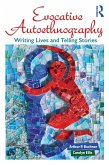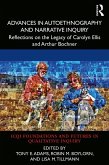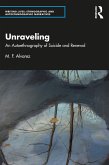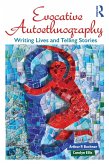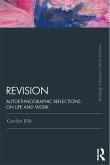Each chapter, while written autoethnographically, showcases sustained engagement with philosophical arguments, ideas, concepts, theories, and corresponding ethical positions. Unlike much other autoethnographic work, within which philosophical ideas often appear to be "grafted on" or supplementary, the philosophical basis of the work in this volume is fundamental to its shifting content, focus, and context. The narratives in this book, from scholars working in a range of disciplines in the humanities and human sciences, function as narrative, conceptual, and analytical exemplars to act as a guide for autoethnographers in their own writing, and suggest future directions for making autoethnography more philosophically rigorous.
This book is suitable for students and scholars of autoethnography and qualitative methods in a range of disciplines, including the humanities, social and human sciences, communication studies, and education.
Dieser Download kann aus rechtlichen Gründen nur mit Rechnungsadresse in A, B, BG, CY, CZ, D, DK, EW, E, FIN, F, GR, HR, H, IRL, I, LT, L, LR, M, NL, PL, P, R, S, SLO, SK ausgeliefert werden.
"The present day confronts us with so many complex ethical, political, and spiritual questions, and it is the challenge of today's writer to chart both the inner world and the other world, and the space between. In Writing Philosophical Autoethnography, Grant has given the contemporary writer a toolkit for developing their art. It offers a deep investigation into what our setting does to our thoughts and feelings and what our thoughts and feelings do to our setting. It charts continents, the soul and literature from around the globe, and marshals them into one compelling thesis. A feat." -- Andy West, author of The Life Inside: A Memoir of Prison, Family and Philosophy




